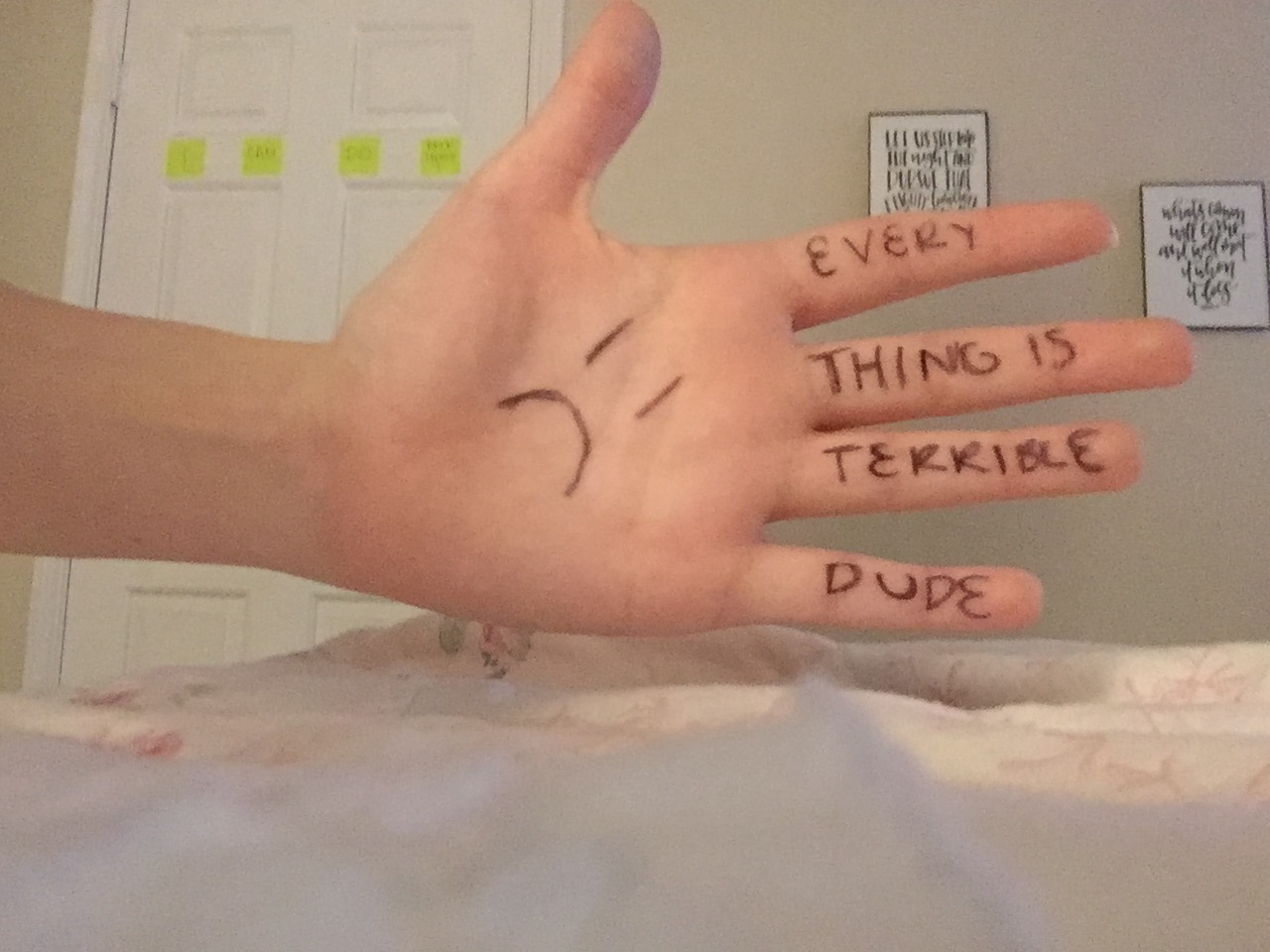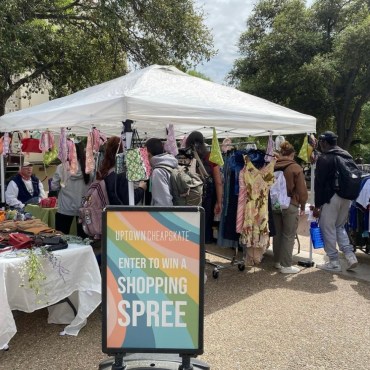Listeners:
Top listeners:
-
play_arrow
KTSW 89.9

By Hannah Wisterman
Blog Content Contributor
Guess what, folks? I’ve had a terrible week. I mean, just awful. I’m stressed, I’m worried, I’m exhausted, I’m burned out, I’m homesick, I’m sad, and the universe is doing an Irish stepdance on my soul. Everything sucks and is horrible. But every time someone has asked me how I’m doing, I’ve given them a sheepish smile and said, “Well, you know, I’m alright.” I’ve said this even while the worn-down specter of my spirit has been screaming and ripping her hair out. It’s just not right.
The “How are you”/”Oh I’m good” exchange is a deeply ingrained pillar of social etiquette. It’s like a reflex not to tell the truth. If we all tell each other we’re happy, or that we’re at least alright, then no one will be upset and we can all get on with our lives and be productive people. Except that’s not true at all. When I tell people I’m doing fine, even when I’m very clearly not, there’s a tendency for them to nod and back away from the subject. And then what do I do with all my pent-up misery? It stays inside me and just gets worse. It’s a trap of my own making: I know I need to reach out but my knee-jerk “polite” response keeps me from doing it.
There was a time in my life where I didn’t have this problem. A few years ago, someone very dear to me passed away, and my ability to abide by social etiquette evaporated. I didn’t have the patience to play along with pleasantries, I refused to put on a passive, easy-going front—I felt utterly terrible, and if anyone asked me how I was, I would answer as such. “It’s been rough.” “Not great.” “Things are hard.” I’m sure my answers didn’t make people happy or even comfortable, but they definitely signaled to my friends and classmates how to proceed. Some people would use my answer as an opportunity to check in and see what was particularly difficult that day. Some people would offer their sympathy and support. Some people just knew to be a bit gentler with me.

What I realized through that time (among so many things) was that if I’m upset, I don’t need to pretend I’m not to cater to the comfort of others. In fact, what I need to do is be honest, for my own sake and for others’. The logic is simple: tell the truth, get it off your chest, and other people can support or avoid you as they see fit. Surprise, being honest is a good thing.
But after time passed and the trauma wasn’t as fresh, I reverted to little white lies when presented with the big how-are-you. I didn’t feel like I could get away with being blunt anymore. And that’s where I messed up. You don’t have to go through a certain amount of trauma or be at a certain level of stressed to “earn” the right to emotional honesty. That should be your baseline. It’s wrong, and dangerous, to think that you can only speak up when you’re about to break.
But author, you say, aren’t you taking this a little far? There are other ways to talk about your feelings. A casual greeting isn’t always the time or place. Oh, sure, and you definitely know how to bring up your emotionally wrought problems in a normal setting. Let’s be real: that “can we talk?” text is one of the most heart-stopping things a millennial can face. And if you don’t bring it up point-blank, you have to wait for it to come up organically, which can take forever.
All I’m saying is that by answering “How are you?” with “Not good!”, you set yourself up for an emotionally productive conversation right away. And as I said before, answering like that may not be polite by normal standards, but I think giving your conversation partner a heads up that you’re not in a good place is very good manners. I’m not saying you have to dump your guts every time someone greets you, I’m saying to reevaluate the ease with which you deny your own feelings.
Here are easy, more socially palatable ways to be honest. If someone asks “How are you?”, you can say…
- Not super great.
- Ooph, it’s been a hard time.
- (stare meaningfully)
- I’ve been having some problems.
- Rough.
- (make a noise from a gut to express your feelings)
Just don’t say you’re fine if that’s not true. It’s dishonest and a disservice to yourself and everyone around you.
Featured image by Hannah Wisterman.
Share this:
- Click to share on Twitter (Opens in new window)
- Click to share on Facebook (Opens in new window)
- Click to share on Tumblr (Opens in new window)
- Click to share on Pinterest (Opens in new window)
- Click to share on Reddit (Opens in new window)
- Click to email a link to a friend (Opens in new window)
- Click to print (Opens in new window)
Be Honest Emotions family Friends Hannah Wisterman Stop Saying You're Fine
Similar posts
This Blog is Propery of KTSW



Post comments (0)